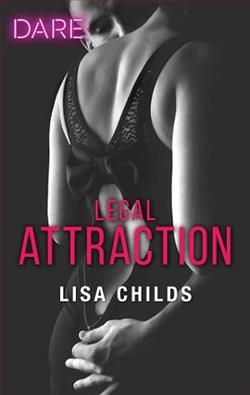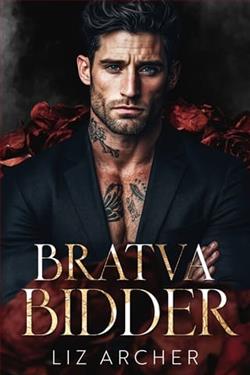Page 45 of The Orc's Captive Bride
“From misuse. From corruption. It indicates that the knowledge it contains could be dangerous in the wrong hands.”
Lasseran’s hands.
“Can you read it?”
“To an extent.” He smiled ruefully. “I suspect your knowledge will soon exceed mine, if the rumors of your linguistic gift are accurate.”
“Rumors?”
“The servants talk. They say you learned the common tongue in a matter of days. Is that true?”
She hesitated. She’d chosen not to think about how quickly she’d picked up the language. How easily the words came to her now. It wasn’t possible, even for someone with her background.
“Yes,” she admitted. “I don’t understand it. Usually language acquisition takes months. Years. But this…” She gestured helplessly. “It feels like remembering.”
“Fascinating.”
“Terrifying, actually.”
“Why terrifying?”
“Because I don’t know the rules anymore,” she said. “Language follows patterns. This—this feels like magic.”
“Perhaps it is.”
She huffed a laugh. “I’m a scientist. I don’t believe in magic.”
“And yet you stand in a world not your own, speaking a tongue you never studied.” His smile was kind. “Perhaps it’s time to expand your definition of possible.”
“You sound like my dissertation advisor.”
“I shall take that as a compliment.”
Despite everything—the fear, the uncertainty, the impossible task—she found herself relaxing slightly. Vorlag reminded her of why she’d fallen in love with languages in the first place. The joy of finding meaning in chaos.
“Tell me about the Beast Curse,” she said. “Lasseran said it was a primitive magic gone wrong, but that doesn’t match what I’m seeing in this text.”
Vorlag settled into a chair with the air of a professor preparing for a lecture.
“The official history—as told by the Crown—is that the orcs were once human, but they practiced dark magics in an attempt to transform themselves into superior warriors. The curse was the price of their hubris.”
“But you don’t believe that.”
“I believe history is written by victors. And the High King’s line has been very victorious.” He steepled his fingers. “The truth is more complex. The orcs were never human. They were their own people with their own culture. The Curse came much later, during the wars, but it didn’t start out as a Curse.”
“What happened?”
“The Five Kingdoms were threatened by raiders from beyond the Southern Sea—and they were losing. The orcs volunteered to undergo a magic ritual which made them stronger, faster, and much harder to kill. It bound them to their rage and brought out what we now call their Beast side—but they have always possessed the ability to control it.”
She nodded thoughtfully, remembering the transformation that had overtaken Khorrek when he attacked the soldier who’d triedto hurt her. He’d been enraged, but he hadn’t been out of control.
“But there was a… side effect. The true Curse is that ever since the wars since then the number of orcs has been diminishing. Less and less children are being born and they are rarely female.” His eyes were sad.
“A side effect? Did whoever created the ritual know about that?”
“So the forbidden texts suggest.”
“Who?”















